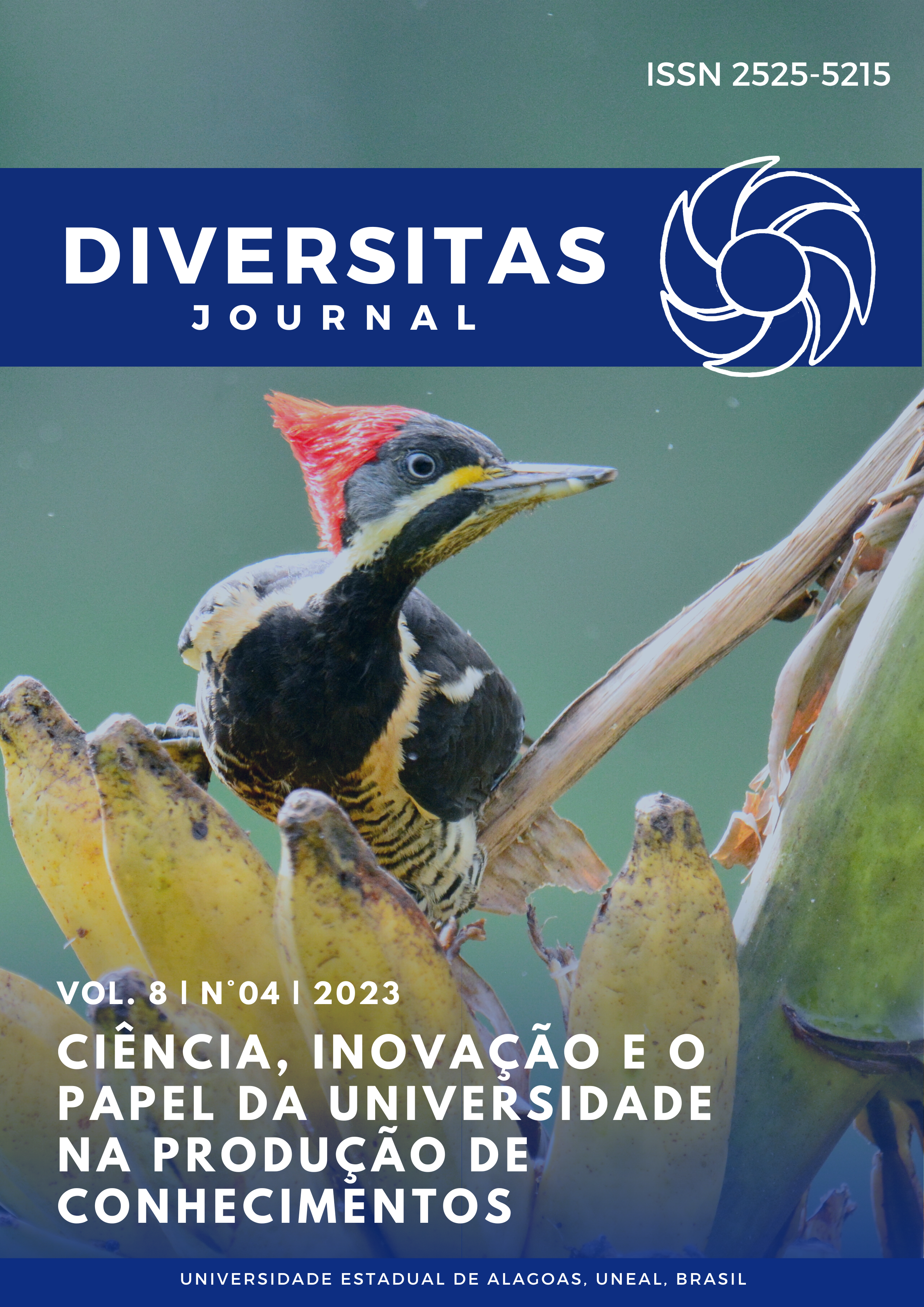Aquilombando Cuidados project
Equity and Permanence of Black, Brown and Indigenous Quota Students at Unesp-Assis
DOI:
https://doi.org/10.48017/dj.v8i4.2459Keywords:
Ethical-racial relations, Human Rights, EducationAbstract
This article aims to discuss the equity and permanence of black, brown and indigenous students in the university environment, more precisely at Unesp-Assis, based on the experience of the Aquilombando Cares Project, from the perspective of Human Rights andthe Anti-Racist Struggle, intertwining this discussion with the possibilities of housing racialized subjects in the university environment as a means of resistance and struggle for a fairer and more diverse university, this article is methodologically guided as an experience report. Our study was based on the promotion of weekly discussions, events, workshops and yarning circles within the university. As a result, we found situations of racism during the university experience of undergraduate and graduate students. We emphasize thata process of collective articulation between racialized individuals and their allies is necessary in the claim for an equitable university space, since only guaranteeing access without structuring the permanence of black, Brown and indigenous individuals in the academy demonstrates the bias of epistemic violence in which our institutions are structured of higher education.
Metrics
References
Datafolha, 50% São a Favor de Cotas Raciais em Faculdades, diz Datafolha. (2022, 13 junho) Poder 360. https://bityli.com/mcgZND.
Administração Geral Campus Unesp de Bauru. (2022) Comunicado Nº 001/2009 – DTAd/AG. Bauru, 2019. https://www.bauru.unesp.br/Home/comunidade/restauranteuniversitario/comunicado-001-2019-dtad-ag.pdf;
Assembleia Geral da ONU. (1948). "Declaração Universal dos Direitos Humanos" (217 [III] A). Paris.
Lei nº 12.711, de 29 de agosto de 2012. Brasília, DF: Câmara dos Deputados. https://www2.camara.leg.br/legin/fed/lei/2012/lei-12711-29-agosto-2012-774113-normaatualizada-pl.pdf.
Carneiro. A. S. (2005) A construção do outro como não-ser como fundamento do ser. Tese (Doutorado em educação). Universidade de São Paulo, São Paulo.
Carvalho, J. J. (2019) Encontro de Saberes e descolonização: para uma refundação étnica, racial e epistêmica das universidades brasileiras. In: Bernardino-Costa, J.; Maldonado-Torres, N.; Grosfoguel, R. Decolonialidade e pensamento afrodiaspórico. Autêntica Editora.
Coordenadoria de Permanência Estudantil (COPE).(2022)Estudo Analítico realizado pela CPPE/COPE sobre Moradias Estudantis da UNESP. file://C:/Users/pasco/Downloads/edital-001_2021_propeg_cope_ctinf_anexo-i.pdf.
Daltro, M. R; Faria, A. A. (2019). Relato de experiência: Uma narrativa científica na pós-modernidade. Estud. pesqui. psicol., 19(1), p. 223-237.
Dias, A. A. (2007) Da educação como direito humano aos direitos humanos como princípio educativo. Educação em direitos humanos: fundamentos teórico-metodológicos, p. 441-456.
FANON, F. (2008) Pele negra, máscaras brancas. Salvador: EDUFBA.
Foucault, M. (1989) Microfísica do poder. (8ª. ed.). Graal.
Marques, E. P. S. (2018) O acesso à educação superior e o fortalecimento da identidade negra. Revista Brasileira de Educação, 23.
Mombaça, J. (2021) Não vão nos matar agora. Cobogó.
Muniz, R.; Silva, V. (2022) Para fortalecer uma cultura dos direitos humanos na Universidade. Unesp, [s. l.]. https://www2.unesp.br/sharer.php?noticia=36747
Pró-Reitoria de Planejamento Estratégico (PROPEG) e a Coordenadoria de Permanência Estudantil (COPE). (2021) EDITAL Nº 001/2021- PROPEG/COPE/CTINF: Chamada Unesp presente para apresentação de propostas ao programa de recuperação e modernização das moradias estudantis.
Ribeiro, D. (2019) Pequeno manual antirracista. (1ª ed.). Companhia das Letras.
Santos, D. B. R. (2009) Para além das cotas: a permanência de estudantes negros no ensino superior como política de ação afirmativa. Tese (doutorado) Universidade Federal da Bahia, Faculdade de Educação. Repositório UFBA: https://repositorio.ufba.br/bitstream/ri/11778/1/Tese%20%20Dyane%20Santos.pdf
Souto, S. (2020) Aquilombar-se: Insurgências negras na gestão cultural contemporânea. Revista Metamorfose, 4(4). S. Souto 133-144.
UNESP 2021. (2022) Censo sobre as diversidades [S. l.]. https://www2.unesp.br/Modulos/Noticias/36747/relatorio_censo2021_vf-1.pdf
Downloads
Published
How to Cite
Issue
Section
License
Copyright (c) 2023 Raul Santos Brito, Alan da Silva Pereira, Giovanna Araújo Navarro, Ludmila Vitoria da Silva, Sagarana Cristina Nascimento dos Santos, Thayná Martinez Pascoal

This work is licensed under a Creative Commons Attribution 4.0 International License.
The Diversitas Journal expresses that the articles are the sole responsibility of the Authors, who are familiar with Brazilian and international legislation.
Articles are peer-reviewed and care should be taken to warn of the possible incidence of plagiarism. However, plagiarism is an indisputable action by the authors.
The violation of copyright is a crime, provided for in article 184 of the Brazilian Penal Code: “Art. 184 Violating copyright and related rights: Penalty - detention, from 3 (three) months to 1 (one) year, or fine. § 1 If the violation consists of total or partial reproduction, for the purpose of direct or indirect profit, by any means or process, of intellectual work, interpretation, performance or phonogram, without the express authorization of the author, the performer, the producer , as the case may be, or whoever represents them: Penalty - imprisonment, from 2 (two) to 4 (four) years, and a fine. ”


















